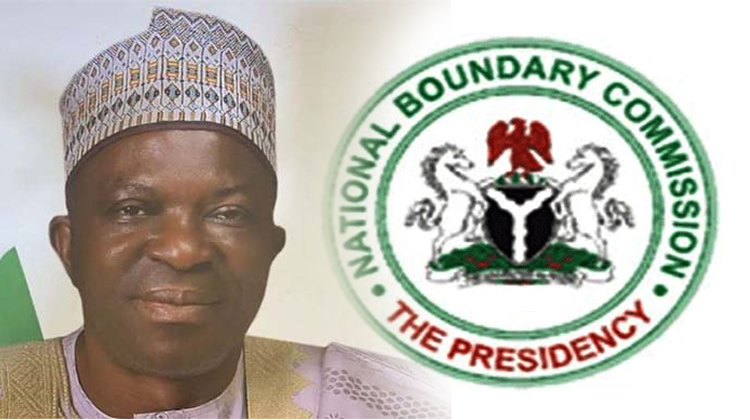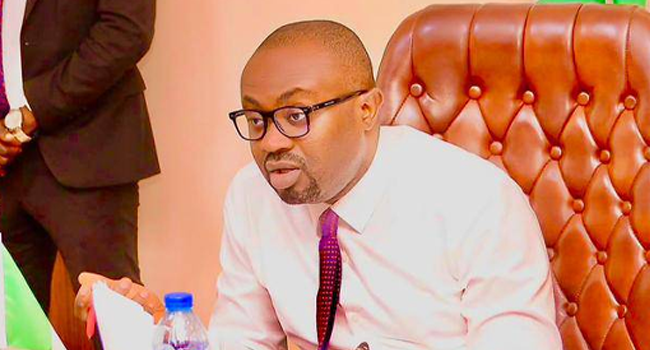News
Communities in Niger Delta live in depressing conditions – SERAP
A new report by the Socio-Economic Rights and Accountability Project (SERAP) has revealed how “communities in the Niger Delta continue to live in depressing and deplorable conditions, despite the fact that the wealth derived from these areas is the main economic mainstay for the country.”
According to the report, “The communities in the Niger Delta remain the poorest in the country.”
The 82 pages report launched today at the Radisson Blu Hotel, Ikeja, Lagos, is titled: ‘We Are All Vulnerable Here’: How Lack of Transparency and Accountability is Fuelling Human Rights Violations in the Niger Delta.
The report presented to the media by Dr. Olubunmi Afinowi, Faculty of Law of the University of Lagos, discloses that “The region remains deeply in the grips of squalor, poverty, and environmental degradation.”
The report shows that, “Corruption contributes to poverty and consequential suffering of many people in the Niger Delta. The right of the people to a clean, safe and healthy environment is routinely violated and abused by the government and oil companies.”
According to the report, “Extensive social, economic, and environmental degeneration has largely affected the lifestyles and wellbeing of the people of the Niger Delta. Also apparent is the continued disregard and abuse of the human rights of the people of the region.”
Femi Falana, SAN said at the report launch, “The management of the Niger Delta Development Commission by interim administrators is illegal. The Attorney-General of the Federation and Minister of Justice, Mr. Abubakar Malami SAN should advise President Muhammadu Buhari to urgently reconstitute the NDDC board of directors.”
Falana said, “Since the appointment of interim administrators is unknown to the NDDC Act, all contracts awarded by them are illegal and liable to be set aside.”
Falana also called on “the Federal Government to release the report of the Forensic auditing of the NDDC to enable the oil producing communities to demand accountability from many contractors who collected huge funds and abandoned development projects in the Niger Delta region.”
Among the people who attended the report launch are: Speaker of Cross Rivers State House of Assembly, Hon John Etim; the Chairman of the ICPC, represented by Dr Grace Chinda; and the Executive Secretary of NEITI, represented by Kareem Lamidi, team lead advocacy for NEITI.
The report launch was also attended by Dina Sabi, Second Secretary of the Embassy of the Netherlands in Nigeria; the Director-General, Bureau of Public Service Reforms (BPSR), represented by Mr. Egbe Ekpe; and the Attorney General of the Federation and Minister of Justice, represented by Barrister Raji Rasaki.
Others are: High Chief Eric Barisa; Madam Florence Kayemba, Stakeholder Democracy Network; the Executive Secretary, NHRC, represented by Mr. Saliu Musa; representatives of communities from the Niger Delta; and the members of the media.
All the participants expressed commitment to ensure the full implementation of the recommendations contained in the report.
The research for the report was conducted under the Niger Delta project supported by the Ford Foundation.
The report, read in part: “While the oil and gas upstream operations span the entire Niger Delta region, the empirical study in this research focuses on the Delta, Bayelsa, and Rivers states.”
“The doctrinal study, on the other hand, is more encompassing and examines the challenges and adverse impacts of the oil and gas industries in the host communities and the government’s response mechanisms through the various regulatory and institutional frameworks.”
“The relevant monitoring agencies have not effectively carried out their duties and functions and this has led to a continued disregard for the rights of the people and the need to protect the environment.”
“Corruption is a major factor in the continued degradation in the region. There is a lack of an effective governance and feedback framework to foster interactions between regulators, companies, and communities. This implies a lack of transparency and accountability from the companies and the government to the people.”
“The oil and gas companies receive minimal government monitoring in the conduct of their activities; more troubling is the prevalence of oil theft and illegal mining, and refining of crude oil. Such illegal activities make the region crime prone and increase the vulnerability of the inhabitants of the communities.”
“The communities are continually exposed to food insecurity and health risks. Most of their communal lands, land and water resources have been lost or continually threatened by degradation and pollution.”
“A lot of information about the oil and gas companies, their activities, environmental audits and other relevant information are not available to the public. Such information is often shrouded in secrecy, and where made available, is limited, unclear and provides little or no actual information.”
“Marginalization of women, the aged, the youths and other vulnerable members of the communities, such as persons with disabilities is rife. This marginalization also has far-reaching implications for the protection of the socio-economic rights of the inhabitants of the communities.”
“President Muhammadu Buhari should publicly recognize and re-affirm that every Nigerian citizen, including oil producing communities, is entitled to economic and social rights, and take steps to ensure constitutional recognition of these rights as legally enforceable human rights.”
“President Muhammadu Buhari should immediately instruct the Ministry of Niger Delta Humanitarian Affairs and other government agencies overseeing the NDDC to immediately publish the forensic report on NDDC conducted in 2021.”
“The leadership of the National Assembly should ensure that the relevant committees collaborate to initiate independent public enquiries and fact-finding on how public funds have been spent by MDAs to mitigate the socio-economic impact of environmental pollution in oil producing communities.”
“The leadership of the National Assembly should make public the findings of any such investigations by the relevant parliamentary committees on the use of public funds by MDAs to mitigate the socio-economic impact of environmental pollution in oil producing communities.”
“The leadership of the National Assembly should make public all reports of previous investigations into allegations of corruption in relevant MDAs concerned with the management of issues relating to the impact of environmental pollution in oil producing communities and send such reports to anti-corruption agencies.”
News
NBC proposes Joint Technical Committee to resolve Kebbi, Niger boundary dispute

The National Boundary Commission (NBC), has proposed a Joint Technical Committee towards resolving the lingering interstate boundary dispute between Niger and Kebbi states.
The Director-General of the commission, Mr Adamu Adaji, made the proposal in Abuja on Friday, during a joint meeting of officials from the two states to agree on way forward.
Adaji explained that the Kebbi State Government had written to the commission, over an alleged encroachment of their lands in Bagudo Local Government Area by the people of Kwankoso Community of Borgu Local Government Area of Niger State.
He added that the government had asked the commission to resuscitate action towards ensuring that the boundary between the two states was clearly defined and demarcated.
He recalled that in 2005, a Joint Committee had identified and articulated some documents adjudged to be relevant in the definition of the boundary.
He, however, said that the expected fieldworks to translate the documents to a physical demarcation on ground could not be carried out over the years.
Adaji expressed optimism that the technical committee, if constituted, would re-visit identified documents and re-evaluate their appropriateness for use in the definition and demarcation of the interstate’s boundary.
He explained that the meeting was organised to find a lasting solution to the boundary dispute.
He also advised the two states to establish a functional Local Government Boundary Committees in each local government area, to prevent boundary disputes from escalating into a crisis.
“There is also the need for the committees to investigate and articulate all facts on the issues and submit report to the State Boundary Committee as inputs for the state’s position:
“There is equally the need for a physical fieldwork to trace the boundary in accordance with relevant documents, if available, or the use of the principle of ground-to-paper, to supplement the insufficient relevant documents.
“The NBC will re-visit the identified documents and re-evaluate their appropriateness for use in the definition of the boundary.
“States and the Local Government Committees should enlighten and sensitise the affected communities on the essence of interstate boundaries, the importance of peaceful co-existence and solicit their cooperation during the field work,” he said.
The DG also called for a joint sensitisation of the affected communities, preparatory to the fieldwork to ensure a hitch-free exercise.
He explained that the Kebbi and Niger interstate boundary spans about 640-kilometre, adding that in 2004, a Joint Committee articulated a set of documents for use on the boundary.
He, however, said that the expected fieldwork was not carried out due to some challenges beyond the commission’s control.
“As we know, both Kebbi and Niger States emerged from what used to be the North-Western State of Nigeria.
“Niger and Sokoto States were created out of the then North-Western State in 1976 with the separation of what used to be the Sokoto and Niger Provinces. This development created a Sokoto- Niger inter-provincial boundary.
“Subsequently, with the creation of Kebbi State out of the former Sokoto State in 1991, part of the hitherto Sokoto and Niger interstate boundary was transformed into the present Kebbi and Niger interstate boundary,” he said.
In his remarks, Surveyor General of Niger, Mr Idris Auna, agreed with Adaji that the dispute required a technical approach that would ensure proper and physical demarcation of the boundary.
Similarly, Mr Sadiq Diggi, Special Adviser to Gov. Nasir Idris of Kebbi on Boundary Issues, also supported the establishment of the technical committee to effectively resolve the crisis.
News
Installation of e-gates at airports is to enhance national security – Minister


Minister of Interior, Dr Olubunmi Tunji-Ojo says the installation of e-gates at the five international airports in the country will enhance national security.
He also said it would ensure seamless processing of passengers coming into and going out of the country.
The minister made the remarks on Friday when he inspected the newly installed e-gates at the Nnamdi Azikiwe International Airport, Abuja.
Tunji-Ojo said that from the preliminary test conducted, it will take less than 30 seconds to process passengers with valid passports, thus reducing the delays and inconveniences hitherto faced by passengers.
He said about 21 e-gates would be installed at Lagos airport by the end of April, while those in Kano, Port Harcourt, and Enugu would be ready by the third week of May.
“Having tested it on various scenarios, we saw that a Nigerian carrying a valid passport will only take less than 30 seconds to be checked in, which I think is a record time.
“We have also tested it with people carrying other people’s passport, and we saw that it is practically impossible for people to use another person’s passport to gain entrance into the country unlike in the past.
“With what we have also seen, it is practically impossible to enter into the country with an expired passport,“ he added.
According to him, the scanners will enhance the nation’s security architecture and enable immigration officials to work seamlessly.
The minister thanked President Bola Tinubu for his support towards making the project a reality.
News
Plateau varsity suspends exams over killing of student


-
Finance3 months ago
Court orders Sen. Victor Umeh to repay N136m bank debt to AMCON
-



 Abuja Update2 months ago
Abuja Update2 months agoUNDP, FG partnership needed to achieve inclusion, equity- Minister
-
Abuja Update4 weeks ago
Banks drive stock market performance with N147bn gain
-



 Infotech3 weeks ago
Infotech3 weeks agoWorld Backup Day: NITDA urges Nigerians to ensure backup of data
-
capital market2 years ago
Rt.briscoe, FBNH, Others halts negative performance of stock market
-



 Health2 weeks ago
Health2 weeks agoImmunisation: FG, GAVI seek synergy with Sokoto Govt.
-
Infotech1 week ago
Forex for Beginners: Unveiling the currency exchange and how to trade it
-
Submission Guidelines4 months ago
CALL FOR SUBMISSIONS: POETRY COLUMN-NND




